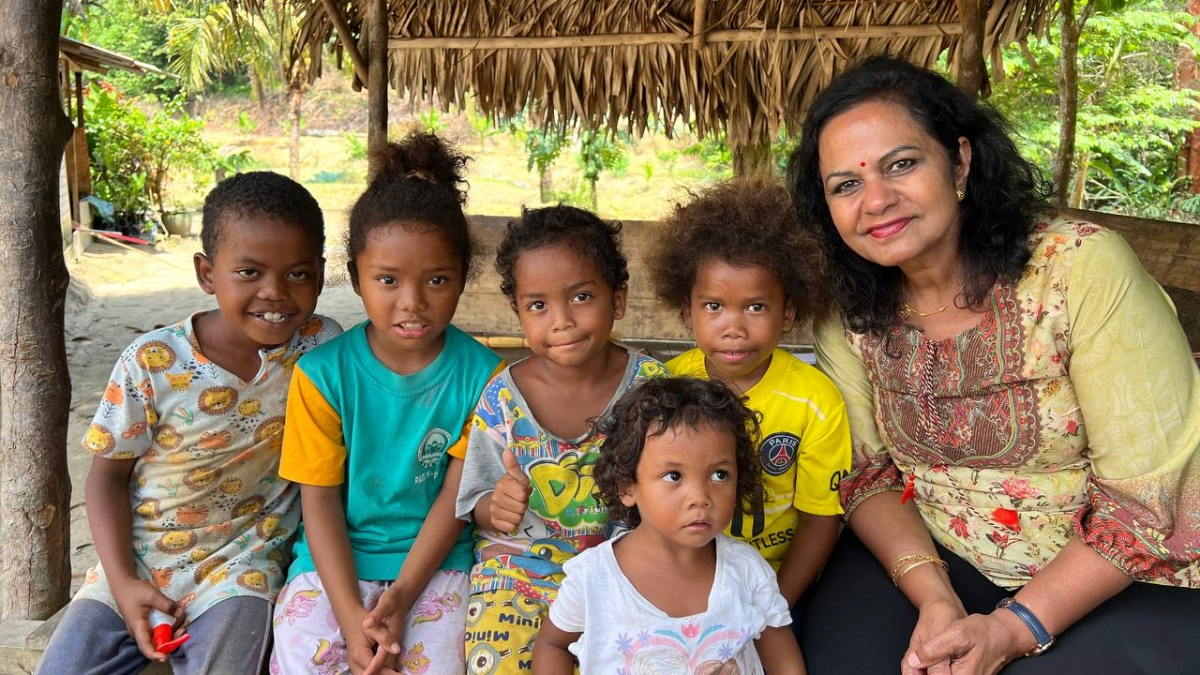Food insecurity is a harsh reality for countless children worldwide, often casting a shadow over their potential. For a child, an empty stomach doesn’t just result in a feeling of physical discomfort; it drains their energy, and is a significant obstacle to learning and reaching their dreams.
No child should ever go hungry. In a vital partnership with the Kathmandu School Project, RYTHM has spearheaded a transformative mid-day meal program at the Shree Jannaudhar Secondary School, significantly impacting the nutritional well-being and educational journey of students.
Currently, the Kathmandu School Project enrolls 630 students, with a substantial 380 belonging to indigenous communities. The project between RYTHM Foundation and National Forum for Advocacy Nepal (NAFAN) extends its support to 270 of these students between Grades 6 to 10, ensuring they receive a daily, nutritious meal that keeps them physically and mentally capable on their learning journey.
Unlocking a brighter future without hunger
Since its inception, the mid-day meal program has yielded remarkable positive developments:
- Increased Admission Rate: The school has witnessed a noticeable surge in new student enrollments, a clear indicator of growing community trust and a heightened interest in the value of education.
- Decreased Dropout Rate: By directly addressing food insecurity, the program has been instrumental in retaining students, especially those from marginalised backgrounds, ensuring they continue their educational path.
- Improved Attendance and Regularity: The consistent provision of a wholesome daily meal has led to higher student attendance and greater consistency in their classroom participation, creating a more engaged learning environment.
- Reduced Incidence of Illness: Better nutrition has visibly contributed to a decline in student health issues, resulting in fewer absences due to sickness and more time spent learning.
- Enhanced Learning Outcomes: The school has reported significant improvements in learning achievement, with a particularly marked positive impact observed in computer lessons, highlighting the link between nutrition and cognitive function.

For students that rely on the mid-day meal program, its impact goes beyond addressing hunger. Sabita, a grateful student, eloquently shared her perspective: “No student goes hungry here. No matter how big your dream is, it’s hard to chase it on an empty stomach. Every meal we receive is a chance to grow our dreams and build a better future. Let’s promise to learn, grow, and one day give back because the best way to honour kindness is to pass it on.”
A representative from the Parent-Teacher Association (PTA) also expressed their profound appreciation: “We truly appreciate this program. It has not only supported students’ health but also enabled them to acquire valuable skills, especially in computer education.”
Building a Foundation for Lasting Change
Despite existing challenges, the mid-day meal initiative has become a cornerstone of student well-being and academic success at the Kathmandu School Project. Beyond simply improving health and attendance, it has served as a critical foundation for ensuring better learning outcomes, especially for Indigenous students who already face compounded challenges beyond that of the average student.
What does it take to ensure long-term progress in successful programs? Learn more about our education efforts in rural Nepal and and join us in closing these learning and gender gaps for good.





